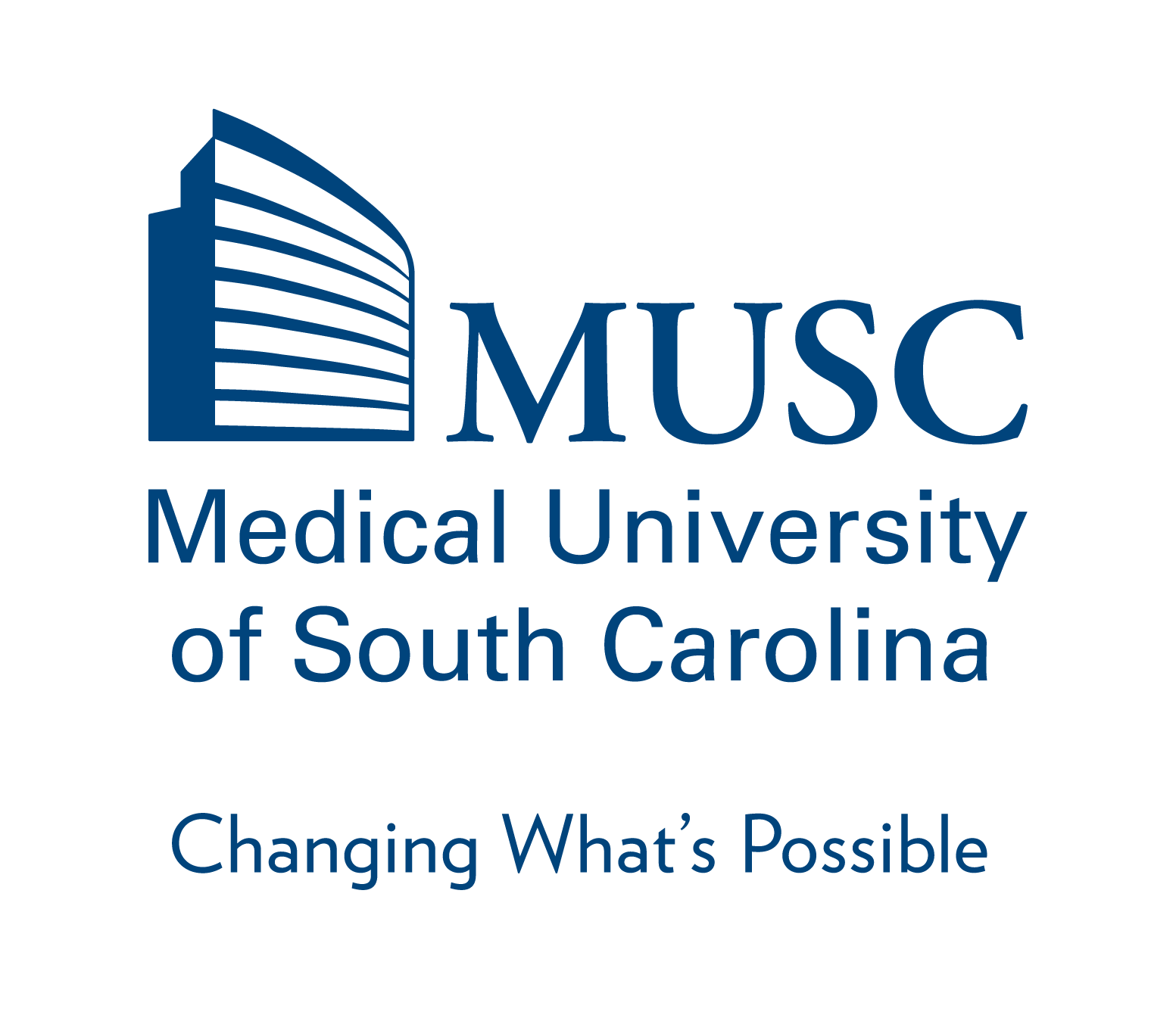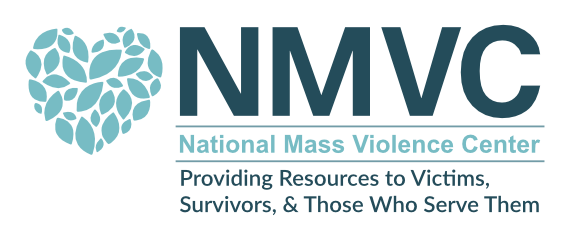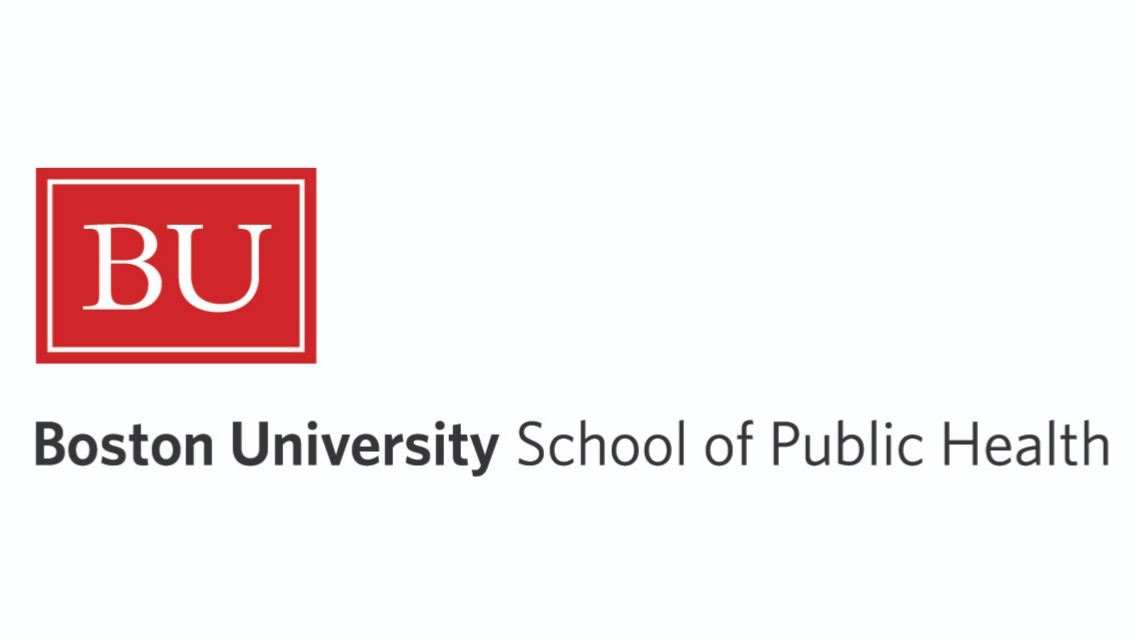NMVC in the News

MUSC Catalyst News
Online platform 'MassViolence.Help' created with USDOJ Office for Victims of Crime funding
Developed by MUSC experts and researchers, the Virtual Resiliency Center is a first-of-its kind website that centralizes evidence-based resources to help victims, survivors and communities affected by mass violence. It also offers customizable pages online for communities to disseminate credible information after a mass violence incident.

NMVC
News Release: NMVC launches ‘Virtual Resiliency Center’ to guide recovery for victims and survivors
NMVC announces a new online platform at “MassViolence.Help” featuring credible resources and customizable pages for communities that experienced an MVI.

NMVC / MUSC
News Release: NMVC developing preparedness plans with communities
In light of National Preparedness month, NMVC announces the work the Center is accomplishing in its new Preparedness division.

U.S. News & World Report
PTSD of Mass Shootings Can Haunt Community Members for Years
Mass shootings and other traumatic events hit community members hard, with those closest to the incident often experiencing post-traumatic stress disorder (PTSD) even years later, new research shows.

MedPage Today
PTSD Ripples Through Communities After Mass Violence
The psychological harm from mass shootings spilled beyond direct survivors and into their communities, a cross-sectional study found.

Medical Xpress
PTSD of mass shootings can haunt community members for years, research reveals
"Mass shootings and other traumatic events hit community members hard, with those closest to the incident often experiencing post-traumatic stress disorder (PTSD) even years later, new research shows." This NMVC study was published July 26, 2024 in the journal JAMA Network Open.

Jama Network Open
NMVC survey study published in JAMA Network Open
Research from NMVC leaders Drs. Angie Moreland and Dean Kilpatrick was published in JAMA Network Open on July 26, 2024, demonstrating how PTSD can be pervasive in communities following mass violence incidents. Their research continues to receive national recognition in the field of mass violence, and these findings can inform efforts PTSD screening efforts throughout communities after an MVI.

MUSC Catalyst News
National Mass Violence Center honored with Congressional ‘Award of Excellence’ in Washington D.C.
National Mass Violence Center honored with Congressional ‘Award of Excellence’ in Washington D.C.

News Release: NMVC awarded U.S. Congressional Crime Survivors & Justice Caucus 2024 'Award of Excellence'
The NMVC was honored with the United States Congressional Crime Survivors & Justice Caucus Award of Excellence on Capitol Hill on April 16, 2024.

Crime and Justice News
Las Vegas Study Shows Long Mental Health Ills Of Shooting Survivors

Las Vegas Review Journal
Las Vegas shooting survivors still feel repercussions, study says

Boston University School of Public Health
Las Vegas Mass Shooting Survivors Continue to Struggle with Major Depression, PTSD

The Post and Courier
Hicks: Don’t simply remember victims of crime; make sure they have support

MUSC CATALYST NEWS
When the "unimaginable" happens
His team will be responsible for developing a way to bring fast and comprehensive services to help those affected by a mass casualty event. 'Our job is not to figure out who is doing this but to figure out how to help those affected by it — the survivors, victims’ families and first responders. We need to be able to respond quickly. This is about trying to really help the nation do a better job when these things happen.'

MUSC CATALYST NEWS
Where can you feel safe?
With the news still fresh about a Texas church shooting that killed 4 percent of the town’s population and left 26 people dead, Dean Kilpatrick and his team at the National Crime Victims Research & Treatment Center are rolling up their sleeves.

LIVE 5 NEWS
MUSC introduces new Mass Violence Center
A new National Mass Violence Victimization Center is setting up here in Charleston, the only facility of it's kind in the state. The new program at Medical Science University will will be used to help people across the country deal with violent tragedies.

POST AND COURIER
South Carolina team wins $18M federal grant to help victims of mass violence
MUSC’s National Crime Victims Research & Treatment Center recently won an $18 million federal grant through the Department of Justice to establish the first Mass Violence Victimization Resource Center. It is, by far, the largest grant the center has received in its 40-year history.

NEWS 2
$18 million grant will help MUSC assist people affected by mass violence
The Medical University of South Carolina in Charleston is opening the nation's first Mass Violence Victimization Resource Center.The center is being funded by an $18 million grant it received from the Office for Victims of Crime (OVC) to help survivors of these horrific events nationwide.

SOUTH CAROLINA PUBLIC RADIO
Mass Violence Victimization & Resource Center
This week Bobbi Conner talks with Dr. Dean Kilpatrick about the new Mass Violence Victimization Resource Center, which is being created to provide services and resources for people affected by mass violence. Dr. Kilpatrick is the Director of the National Crime Victims Research and Treatment Center at MUSC.

WMBF NEWS
Mass violence impacts to be studied at new MUSC center
When the unimaginable happens, one South Carolina school is leading the way to help victims of mass violence... A team of people at the Medical University of South Carolina is spearheading efforts to change the way our nation responds to these kinds of events.

MUSC CATALYST NEWS
MUSC experts working on Mass Violence Center discuss lastest school shooting
There may not be an agreed-upon plan to prevent mass shootings, but there is an effort to make sure people affected by such violence get the best treatment possible. That’s where the MUSC-based center, funded by an $18 million grant from the federal Office for Victims of Crime, will come in.

INDEX JOURNAL
Oakland to Parkland: We have to fix this
In October, the Medical University of South Carolina’s National Crime Victims Research and Treatment Center received an $18 million federal grant to set up the country’s first Mass Violence Victimization Resource Center. The facility will be led by Dean Kilpatrick. His team will be responsible for developing a way to bring fast and comprehensive services to help those affected by a mass casualty event.

SOUTH CAROLINA PUBLIC RADIO
Helping Teens Cope after National Tragedy
This week Bobbi Conner talks with Dr. Rochelle Hanson about helping teens cope in the aftermath of national tragedy. Dr. Hanson is a Professor in the Departments of Psychiatry and Pediatrics, and she is the Director of the Family and Child Program at the National Crime Victims Research and Treatment Center at MUSC.

THE NEW YORK TIMES
‘You Can’t Put It Behind You’: School Shootings Leave Long Trail of Trauma
Dr. Rochelle Hanson was featured in this New York Times article about the long-lasting trauma effects from school shootings. Dr. Hanson is a Professor in the Department of Psychiatry and Pediatrics, and she is the Director of the Family and Child Program at the National Crime Victims Research and Treatment Center at the Medical University of South Carolina.

PITTSBURGH POST-GAZETTE
Moving on from a massacre: Squirrel Hill residents have help, but is it reaching those in need?
Dr. Alyssa Rheingold spoke with the Pittsburgh Post-Gazette to discuss the ongoing process of moving on after a mass violence incident. Dr. Rheingold is a Professor in the Department of Psychiatry and Behavioral Sciences and co-director of Preparedness, Response, & Recovery with the National Mass Violence Victimization Resource Center at the Medical University of South Carolina.

MUSC CATALYST NEWS
Combating mass shooting anxiety with data - and awareness
Dr. Connie Best spoke with MUSC Catalyst News, offering some information that may dispel any fears people may have after recent mass shootings. Dr. Best is a clinical psychologist and Professor in the Department of Psychiatry and Behavioral Sciences at the Medical University of South Carolina (MUSC). She serves as the Director of the Preparedness, Response, and Recovery Division of the National Mass Violence Victimization Resource Center.

NATIONAL MASS VIOLENCE VICTIMIZATION RESOURCE CENTER
Thoughts and Prayers are not Enough
Dr. Dean Kilpatrick, Director of the NMVVRC, makes a statement in response to the recent mass violence incidences that occurred in Gilroy, California, El Paso, Texas, and Dayton, Ohio.

HUFFPOST
This Is What Life Is Like For Us A Year After The Tree Of Life Synagogue Mass Shooting
Dr. Alyssa Rheingold was featured in this HuffPost article examining life one year after the Tree of Life Synagogue mass shooting. Dr. Rheingold is a Professor in the Department of Psychiatry and Behavioral Sciences and co-director of Preparedness, Response & Recovery with the National Mass Violence Victimization Resource Center at the Medical University of South Carolina.

MUSC CATALYST NEWS
MUSC-based mass violence center tackles surprising issues
Yvonne Lewis, of Flint, Michigan, was surprised when she got a call asking if she'd like to be part of a stakeholders' panel at the National Mass Violence Victimization Resource Center based at the Medical University of South Carolina.

SC PUBLIC RADIO
Grief & Loss: Getting Through the Holidays
The NMVVRC's Dr. Alyssa Rheingold sat down with Bobbi Conner of SC Public Radio for a discussion on ways to cope with grief and loss during the holiday season. Dr. Rheingold is a Professor in the Department of Psychiatry and Behavioral Sciences and co-director of Preparedness, Response & Recovery with the National Mass Violence Victimization Resource Center at the Medical University of South Carolina.

MENTAL HEALTH NEW RADIO NETWORK
Traumatic Grief with Dr. Alyssa Rheingold
This week, the NMVVRC's Dr. Alyssa Rheingold was a featured guest on "The Trauma Impact" podcast discussing traumatic grief as a result of mass violence.

SC PUBLIC RADIO
Coping With Uncertainty & Protecting Our Mental Health During the Pandemic
The NMVVRC's Dr. Rochelle Hanson spoke with Bobbi Conner about coping with uncertainly during #COVID19.


